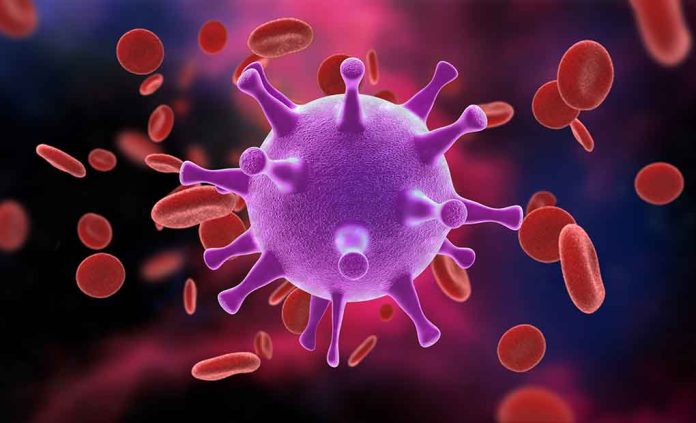
Deadly superbugs discovered in imported shrimp could render our last-resort antibiotics completely useless, putting American lives at risk due to weak foreign regulations.
Key Takeaways
- Colistin-resistant genes found in imported shrimp and scallops from Atlanta markets could spread deadly antibiotic resistance through America’s food supply.
- Over 90% of seafood consumed in the U.S. is imported, often from countries with lax antibiotic regulations, creating a massive vulnerability in our food security.
- Colistin is considered a “last-resort” antibiotic critical for treating life-threatening bacterial infections when all other treatments fail.
- University of Georgia researchers confirmed imported seafood harbors these dangerous genes while locally produced seafood does not, highlighting another risk of relying on foreign food sources.
- Antibiotic-resistant infections already cause approximately 35,000 American deaths annually, with this new threat potentially increasing that toll.
Foreign Seafood Imports Threaten American Health
The Biden administration’s failure to secure our food supply has created yet another crisis, as University of Georgia researchers discovered deadly antibiotic-resistant bacteria in imported shrimp and scallops sold in Atlanta markets. This alarming finding reveals how foreign food imports, especially from countries with minimal health and safety standards, directly threaten American public health. The research team identified multiple types of mobile colistin-resistant (mcr) genes in these seafood products, representing a danger since colistin serves as the last line of defense when treating severe bacterial infections like pneumonia and sepsis.
The situation becomes even more concerning considering the massive scale of our seafood imports. “We love our seafood. [But] if you go out to lunch today, your plate might have ingredients from six, seven, eight countries,” said Lead researcher Issmat Kassem.
America’s Dangerous Dependence on Foreign Food
The shocking reality is that over 90% of seafood consumed in the United States comes from overseas, creating an enormous vulnerability in our food security. This overwhelming dependency on foreign nations for our basic nutrition has been ignored by liberal politicians who seem more interested in climate accords than protecting American consumers. The University of Georgia study directly connected this problem to lax foreign regulations, finding that domestically produced seafood did not contain these dangerous resistance genes. The findings demonstrate yet another case where America’s increasing reliance on imports directly threatens our national health security.
“Some countries do not have strict regulations for using antibiotics in food animal production, so imported food can be a vehicle for transmission of resistance,” said Lead researcher Issmat Kassem.
The research team confirmed that these bacterial resistance genes can transfer between different bacterial species via plasmids, small DNA segments that can move between bacteria. This alarming capability means that harmless bacteria carrying these resistance genes in imported food can potentially transfer them to dangerous pathogenic bacteria already present in the human body. When this happens, previously treatable infections can suddenly become life-threatening as our most powerful antibiotics lose effectiveness. The current screening protocols for imported seafood completely fail to detect these threats.
The Growing Antibiotic Resistance Crisis
Antibiotic resistance represents one of the most significant public health challenges facing America today, with over 2.8 million resistant infections occurring annually and approximately 35,000 resulting deaths. The discovery of colistin-resistant genes in our food supply could dramatically worsen this crisis. Colistin, classified by the World Health Organization as a “critically important antibiotic,” was first discovered in the 1950s but was largely abandoned by the 1980s due to significant side effects. Ironically, medicine had to return to using this powerful but problematic drug in the 1990s precisely because other antibiotics were losing effectiveness against resistant bacteria.
“The bacteria that were carrying colistin resistance genes are not normally screened,” said Kassem.
What makes this discovery particularly alarming is that before 2016, scientists believed colistin resistance could only be inherited, which means it could not jump between different bacteria. However, the identification of mobile colistin-resistance genes shattered this understanding, proving that these resistance capabilities can indeed transfer between bacterial species. This means that consuming contaminated seafood could lead to colonization of a person’s gastrointestinal tract by resistant bacteria, potentially causing deadly infections when their immune system weakens. Researchers have now identified at least ten different mcr genes with numerous variations, showing how this threat continues to multiply.
Protecting American Families
The study’s findings will be presented at the ASM Microbiome 2025 meeting and published in the journal mSphere, but Americans need action now, not more academic discussions. While thorough cooking can reduce infection risk by killing resistant bacteria, cross-contamination during food preparation remains a serious concern. Vulnerable populations, including older Americans and pregnant women, face heightened risks and are advised to avoid raw seafood entirely. The researchers also warned that other imported food groups likely pose similar threats, suggesting this problem extends far beyond just seafood.
President Trump’s emphasis on American self-sufficiency and reduced dependence on imports proves increasingly prescient as more of these health threats emerge. The connection between the same resistance genes found in imported seafood and those previously identified in Georgia wastewater further demonstrates how these dangerous genetic elements are already circulating in our environment. Until our government prioritizes American food security and implements proper screening for these invisible threats, consumers must remain vigilant about where their food originates and how it’s prepared to protect their families from these deadly superbugs.




